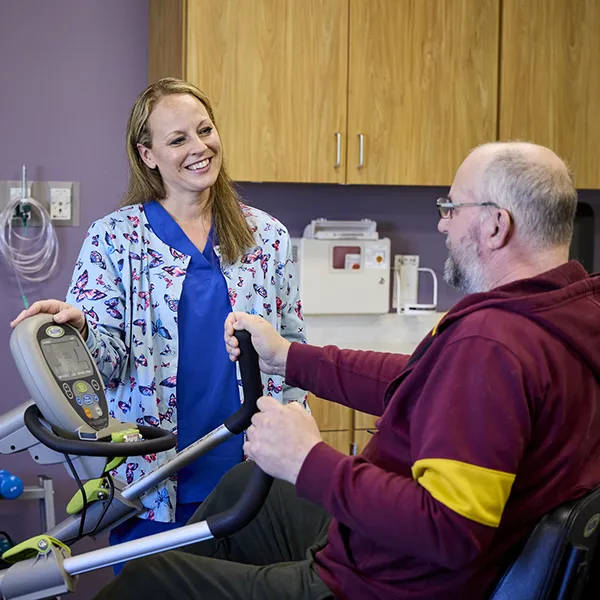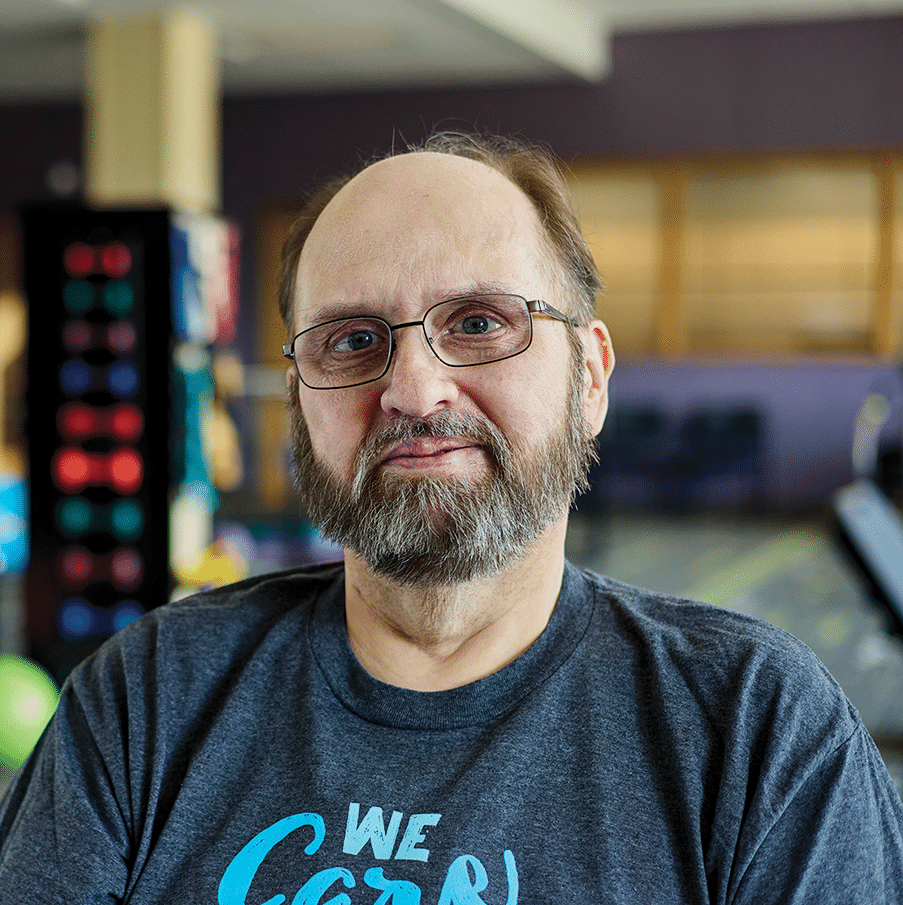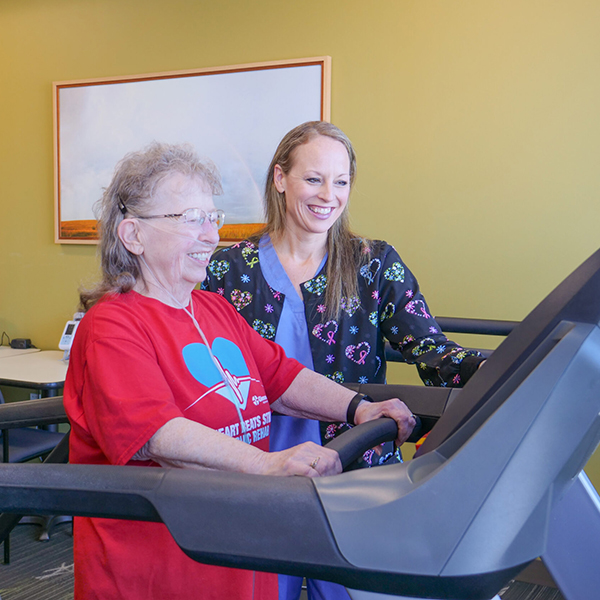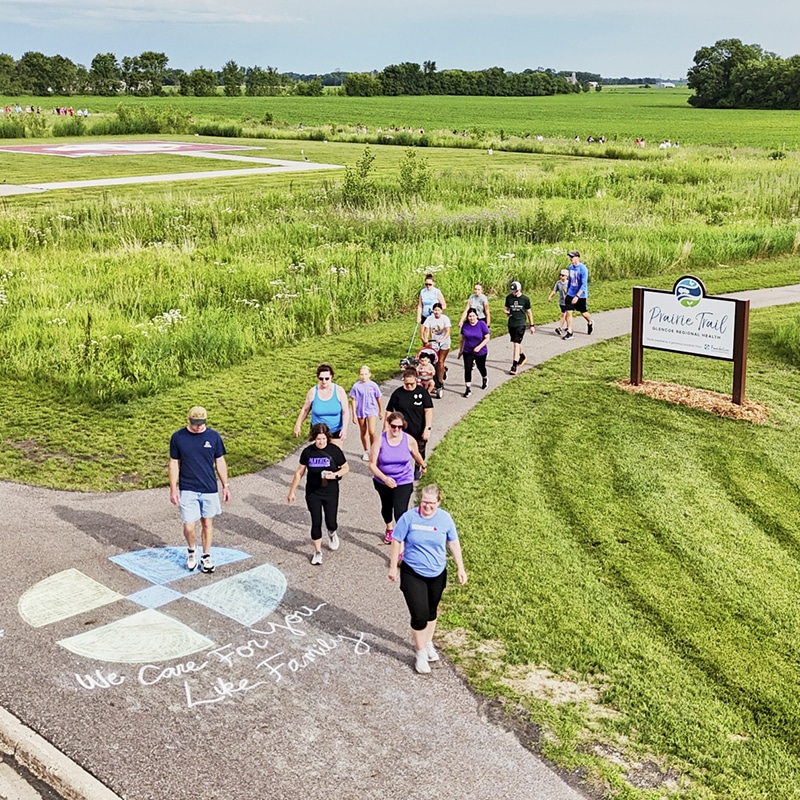
Cardiac rehabilitation is a personalized, safe, medically supervised program that doctors prescribe to help patients recover from heart problems, including:
• Heart attacks
• Chronic heart conditions such as stable angina (chest pain) or heart failure
• Heart surgeries such as valve replacements, coronary artery bypass grafts or catheter-based procedures to open blocked arteries
Cardiac rehabilitation helps to improve the health and well-being of people who have heart problems. It helps them feel and function better after heart surgery or a heart attack. It also reduces their risk of getting worse or dying from a heart problem in the future.
Cardiac rehabilitation at GRH
As the nurse manager of cardiac rehabilitation, my job is to supervise all aspects of our program. Although weight loss and exercise to strengthen the heart is a big part what we do, there’s much more to cardiac rehabilitation. We provide other services that help patients recover and learn how to best manage their heart conditions by addressing:
Risk factors. We evaluate patients’ risk factors and provide tips to help them avoid future problems. Following our advice can help patients lower their blood pressure, heart rate and cholesterol levels.
Nutrition. Patients meet with GRH dietitian Melissa Trebesch to learn how to make positive changes in their eating habits to promote weight loss and heart health. This includes understanding the basics about heart-healthy diets and developing everyday skills such as avoiding sodium and fat, and reading nutrition labels to choose the best foods.
Stress. We teach relaxation techniques that help patients cope with stressful situations, because stress is a significant contributor to heart problems. Exercise is also a stress-buster.
Need for support. Attending cardiac rehabilitation puts patients into contact with others who are in the same situation. I’ve found that a lot of bonding goes on between our patients. They encourage each other to achieve a heart-healthy lifestyle and provide emotional support to each other.
Does it work?
Medical research has proven that cardiac rehabilitation works. For example, an analysis of Medicare records has shown the death rate among people who participate in cardiac rehabilitation is about 35 percent lower than among people who do not. Patients who attend cardiac rehab also are less likely to have a repeat heart attack and make fewer trips to the emergency room. One of the biggest benefits to cardiac rehab is that people tend to be able to live independently longer. They are better able to move their bodies making it easier to work and do the things they enjoy.
The American Heart Association and the American College of Cardiology recommend cardiac rehab because it reduces patients’ risk of future heart problems and risk of dying from a heart attack. It can also decrease the need for some medications by reducing pain, chest pain and blood pressure.
As a cardiac rehab nurse, I see how committed we are to serving heart patients and helping them live as full a life as they possibly can. As we walk beside patients on their road to recovery, we like to think that all of our hearts beat stronger.







